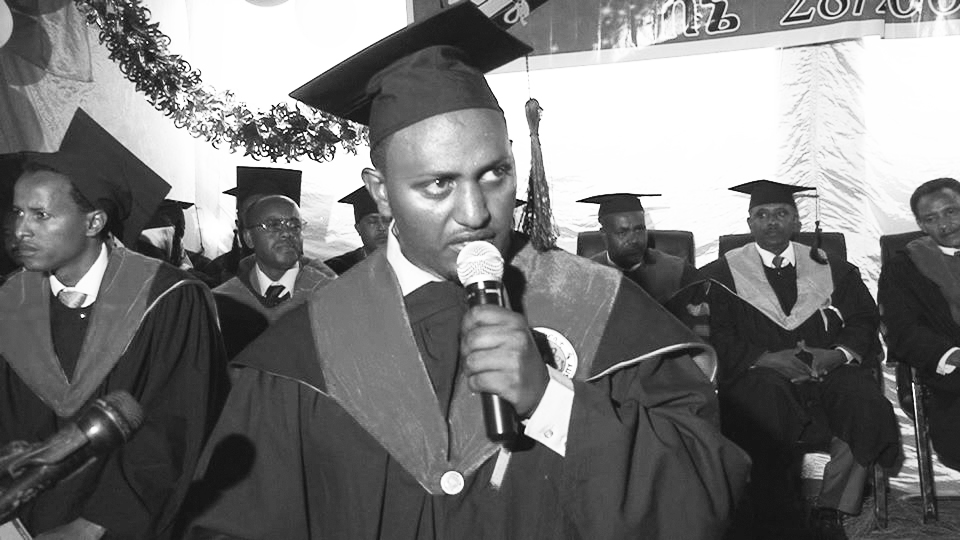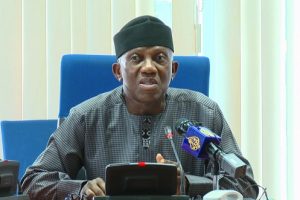
Tesfaye Bezabeh (Ph.D.)
The role media plays towards the building of a strong nation is beyond question. However, the experience of most developing nations has shown that media has been used and is still being used as a tool to promote own agenda at the expense of democracy and public order as a whole. In contrast, democratic nations have used media as a tool to protect the safety and interest of their people. But it does not mean that mass media in democratic countries are immune from bias. Several instances have proven this true. Using this as a ground The Ethiopian Herald (EH) had moments with Mass Communication researcher Tesfaye Bezabeh (Ph.D.) who reflected his views on Ethiopia’s experience towards the use of mass media and developmental communication.
EH: Media has a crucial role in economic, social and political changes of any nation but its use has been abused several times. Why do you think is that?
Dr. Tesfaye: Several reasons can be given to this. The first reason is that the media should not be used as a tool for political leaders for short-lived gains. Media should be used as a weapon to bring about lasting solutions to societal problems.
EH: What do you mean by that?
Dr. Tesfaye: Our experience shows that media had been used as a tool for political propaganda of leaders. The media should serve all sections of society. It should not serve only political figures. A media outlet that neglects the concern of the society and that fail to address the basic problem is not just a media. What is more, the media policy of the nation also needs due attention. There is no clear media policy in the country. Media should play a key role to promote an all-round change in society. Hence, it is incumbent upon the government to draw a sound media policy.
EH: Do you think we have properly applied principles of developmental communication? If not, where is the gap?
Dr. Tesfaye: To be specific, there is a gap between theory and practice in the case of developmental journalism (DJ) in Ethiopia. Several reasons can be mentioned to this. The capacity of journalists and media managers is the major factor that hinders the practice of DJ.
DJ or broadly development communication is not acting as a mouthpiece of the ruling party or parties. It needs independent media managers and professionals, not to mention the importance of seasoned media practitioners.
EH: What do you mean by independent media managers?
Dr. Tesfaye: As I mentioned before, the capacity of journalists and media managers affect the quality of that particular media house. Whenever media is run by politically affiliated managers, it tends to be the mouthpiece of the government, and it fails to spot gaps.
For your question “Is Developmental Journalism practical in Ethiopia?” The answer is confusing.
EH: Why is that confusing?
Dr. Tesfaye: I think there is no directive set to guide DJ. I don’t think the principles of developmental journalism and the ways of its application are well fitted here. There is still a gap between the theory and the practice.
For instance, after WWII, South American and Asian countries practiced DJ. These countries have their models and sources. Thus, whenever they face challenges, they will apply their models to adjust the
system. This has enabled them to monitor the political and economic systems of their nations.
When it comes to Ethiopia, DJ is always considered and understood as it is all about reporting the achievements of the government, whilst keep hiding weakness.
The quality of a journalist is another problem. DJ becomes effective with the exercise of professionalism and ethics. What is more, developmental journalism needs to include the basic question of society. It should include the community at the grass-root level. In our experience, developmental journalism focuses on event-based issues. It tends to report the launching of projects without follow-ups.
EH: Do you think the federal structure of the nation that is based on ‘language and psychological make-up of people’ has its side effect on the media practice?
Dr. Tesfaye: The federal structure has its implication on the media. For instance, the Tigray region has its TV station, the Amhara region has its station, Oromia region has its station…If these regional states are using the mass media to report the successful accomplishment of the region, it is good. But, if they are using it as a means to promote ethnic agendas, the mass media could be a source of tension instead of promoting unity. In this respect, regional media houses have to investigate their editorial policies.
I have already mentioned that the media have a crucial role in development and peace. Well, peace does not always mean absence of conflict. In this respect, the media should play a leading role in promoting peace. However, if it is not properly managed, it will backfire. This is especially true for those multi-nation countries.
Media should not be an instrument of propaganda. It should not be used as a weapon targeting at tarnishing one socio-linguistic group over the other.
The media has a great power to stabilize the peace and stability of a given society. However, if it is not properly handled, it has also a great potential to jeopardize the peace and stability of the nation. In this regard, the media’s footings should be based on a firm foundation and media experience of a nation will play its role in this regard.
EH: How do you evaluate the experience of Ethiopia towards mass media?
Dr. Tesfaye: We cannot say the media is at its infant stage. Of course, its infancy is in its application. Thus, nurturing socially responsible citizens is one way. Also, rigorous training on media practice and ethics can help to mature the application, I believe.
The Ethiopian Herald May 15/2020
BY LEULSEGED WORKU



